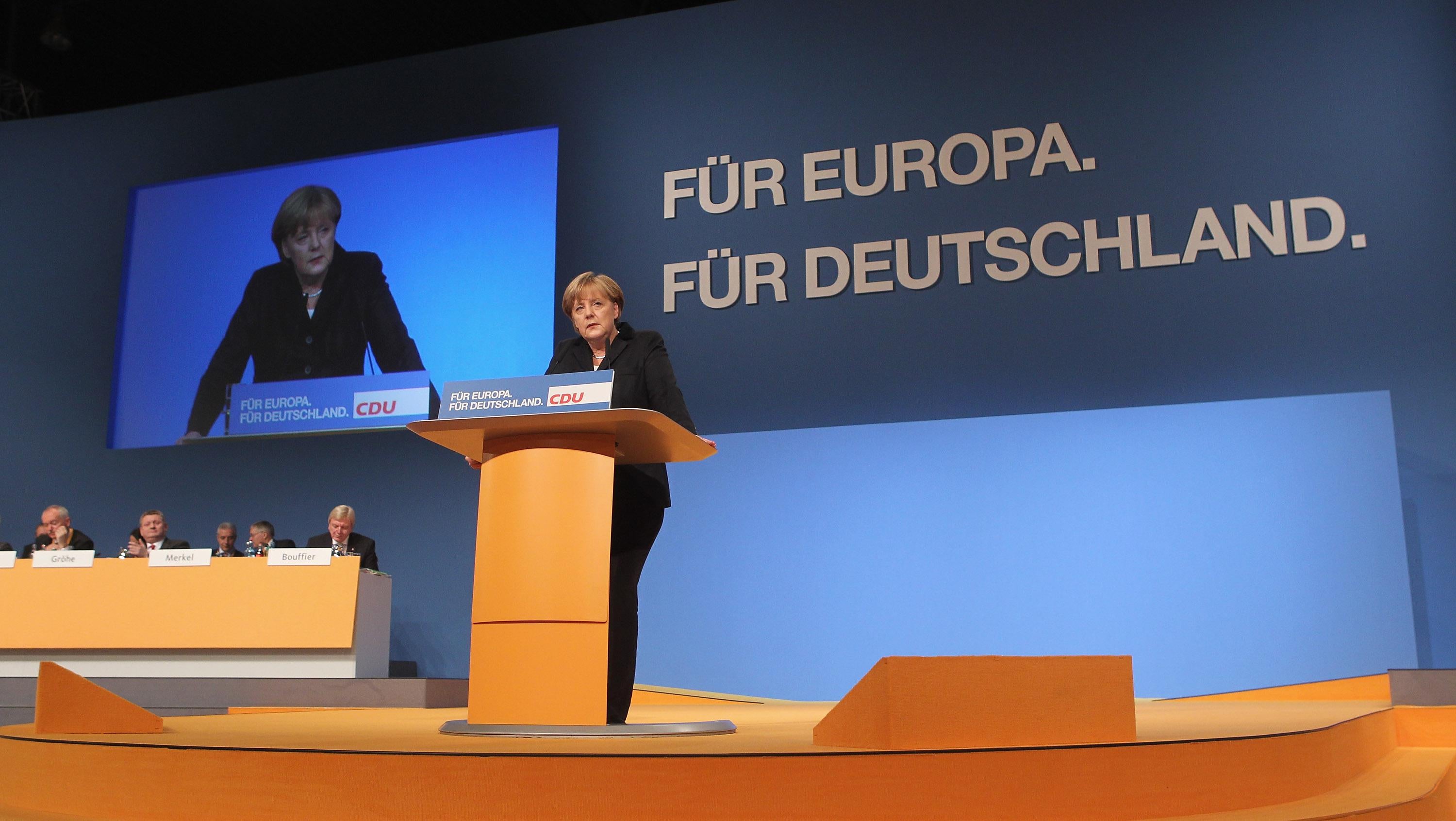Joshua Keating at Foreign Policy has an enlightening item about a recent spate of anti-German commentary as Europe’s biggest and strongest economy uses its structural position in the Eurozone to twist southern European arms. The bottom line is that “when magazines have to run stories denying that German economic policy is driven by a hidden Nazi agenda and do it with a great big swastika on the cover, it’s not so good for Germany.”
This is a reminder that a little dose of old-school European political history (something like A.J.P. Taylor’s The Pity of War: Explaining World War One argues that this was a mistake and outlines the German war aims in a chapter titled “The Kaiser’s European Union.” The Germany of that era was the “bad guy” in the war from the Anglo-American point of view, but was hardly some kind of Nazi-esque evil. That’s just how the balance of power played out. Then during the Cold War a large chunk of Germany was on the other side of the Iron Curtain, which made France and Germany something resembling equal partners. Today if the U.K. were in the Eurozone, then Germany’s voice would be a bit more lost in the cacaphony and Britain would be able to team up with France to check Berlin, but Tony Blair and Gordon Brown rightly thought this would be an economic disaster for their country and stayed out. As currently structure, the Eurozone is either going to be a German-dominated entity or it’s going to be nothing.
Nothing is an option we’ve been hearing more about lately. The best reason for a country to never even contemplate leaving the Eurozone is that it would promote massive bank runs that destroy its financial system. But Spain and Italy are already experiencing bank runs, and if they get worse there may be nothing to lose by leaving and much to gain by regaining control over your own monetary policy.
The other possibility would be to move the European Union more toward real democracy. The House of Representatives isn’t “dominated” by the California delegation, there are just a lot of members from California. Most of them are Democrats, generally pretty liberal ones, and a large minority of them are very conservative Republicans. They hate each others’ guts, and debate issues of national significance on a nationwide basis. California Republicans have more in common with Alabama Republicans than with Nancy Pelosi. And when America redistributes money, we talk about taxing the rich to subsidize the poor instead of taxing San Francisco to subsidize Kentucky. American political debates are sometimes selfish and narrowminded, and sometimes broad and idealistic, but they’re all debates about America. Europe would function much better if there were real European politics on the European level. But that’s a tall order. Americans love democracy, but we prefer to see all our business with Mexico conducted on a strictly intergovernmental level.
